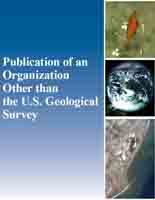Among stages of avian ontogeny, the act of nest departure or fledging is an abrupt transition into a new environment and a major leap toward independence for offspring. In altricial birds, the timing of fledging is notable in that many species tend to fledge early in the morning. Past studies have proposed nest predation as a key factor driving birds to fledge earlier in the morning (the ‘survival hypothesis’), whereby offspring avoid peak times of nest predation that may occur later in the day. A natural extension of this hypothesis is the predation of offspring post-fledging, whereby offspring are also timing their fledging with future survival prospects outside of the nest. However, few studies have investigated fledging behavior in the context of both nesting and post-fledging predation. To help fill this knowledge gap, we investigated factors driving the timing and duration of fledging across six songbird species in the context of offspring predation: daily nest mortality, post-fledging mortality, and diel patterns of nest predation risk. We found that >60% of songbirds fledged early in the morning, while the peaks in nest predation risk occurred later in the day. Furthermore, species under greater risk of nest predation fledged earlier in the day and in closer succession to their siblings. Parameters of post-fledging mortality were poor predictors of fledging timing, but broods of species under higher risk of post-fledging mortality fledged more rapidly. These results provide evidence in support of the survival hypothesis, and suggest that songbirds fledge in the morning to avoid peak times of nest predation risk that occur later in the day (~8 hours after civil dawn). Such results corroborate past research highlighting predation on dependent offspring as a key factor driving variation in life histories across animal taxa, however, estimates of post-fledging mortality suggests that nest predation alone does not fully explain variation in fledging behavior among species. Future research is therefore needed to investigate the contribution of other factors, such as energetics, parent-offspring conflict, and diel patterns of post-fledging survival, that may help to mediate diel patterns of fledging within and among songbird species.


